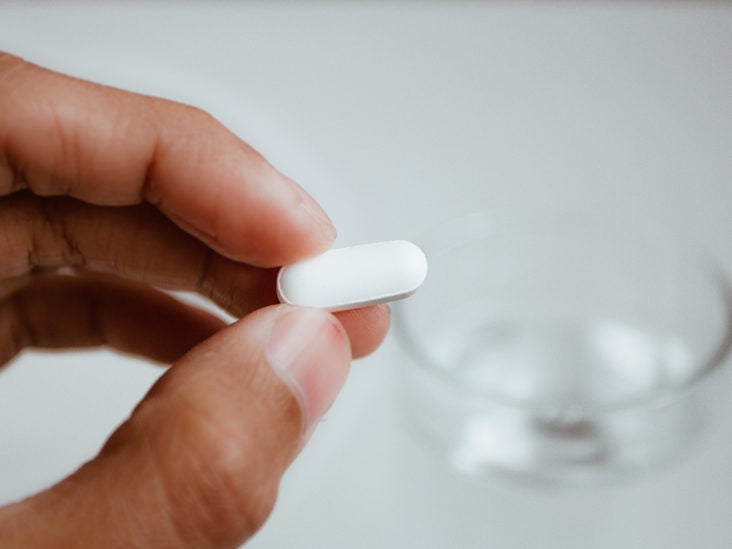Think you might be struggling with erectile dysfunction? It’s nothing to be embarrassed about. Erectile dysfunction (ED) affects approximately 52% of the male population. The ability of a man to achieve and maintain an erection is dependent upon several factors: your hormone levels, circulation in your blood vessels and your state of mind are some examples. To achieve an erection, your brain sends a signal through your nerves and hormones to your blood vessels and muscles.
More often than not, ED causes extreme frustration and stress, especially over a prolonged period of time. Fortunately, ED is treatable with the use of medication, lifestyle changes and other alternative forms of treatments. If you are struggling to achieve or maintain an erection on a regular basis, consider speaking to a healthcare professional as they can determine if you are indeed suffering from ED or not.
But before that, it is imperative for you to identify the primary cause and get to know the symptoms of your ED so that you can take appropriate actions. Below, andSons have gathered all of the information you need to know about ED, as well as the appropriate treatment options for ED. Let’s get started!
Firstly, What is Erectile Dysfunction (ED)?

First, let’s grasp an understanding of how the condition can affect you before identifying the different causes. The term “Erectile Dysfunction (ED)” expresses an inability to achieve or maintain an erection long enough to engage in sexual intercourse. Some examples of ED include erections with short durations or are not as firm as you would like them to be.
So, What Causes Erectile Dysfunction?

ED can be a tell-tale sign of underlying health problems like hypertension (high blood pressure), diabetes and high cholesterol. The blood vessels in the penis are smaller than all those in your body leading to your heart and brain. As such, ED can be an early indicator of health issues such as high cholesterol or high blood pressure. Noticing this early prevents a blockage that may cause severe health problems, such as a heart attack or stroke.
Physical Causes of Erectile Dysfunction
A healthy and longer-lasting erection – think Energizer batteries – is dependent upon a healthy blood flow to the penis. However, there are a number of different health conditions can impair blood circulation. These include:
- Heart disease
- High cholesterol
- Hypertension (high blood pressure)
- Atherosclerosis
- Diabetes
- Obesity
- Metabolic syndrome
- Multiple sclerosis
- Parkinson’s disease
- Sleep disorders
- Peyronie’s disease
Medications That Cause Erectile Dysfunction
Many common prescriptions and over-the-counter (OTC) drugs can cause ED as a side effect. This is because they can decrease libido, disrupting regular blood flow to the penis. This causes absent seminal emission (a lack of semen as a product of ejaculation) or retrograde ejaculation (semen backs up into the bladder during orgasm). Some of these drugs include:
- SSRIs (a class of antidepressants known as selective serotonin reuptake inhibitors)
- Beta-blockers (a type of heart medication)
- Antihypertensives
Psychological Causes of Erectile Dysfunction
Mental health problems can cause sexual dysfunction in men, with depression and anxiety being commonly associated with ED. If you are facing mental health problems, your body will release a hormone called cortisol. Cortisol is a hormone which constricts blood vessels in your penis. As a result, blood is not able to flow to your penis, making it difficult to achieve an erection.
Sleep disorders are another concern as they, too, can alter the hormonal balance in your bloodstream. This, in turn, causes a disruption to the flow of testosterone in your blood vessels, leading to an ED. Similarly, stress can restrict the flow of blood to your penis, affecting your ability to achieve and maintain an erection.
What Are The Symptoms of Erectile Dysfunction?
Some of the most common symptoms of erectile dysfunction are trouble getting an erection and maintaining an erection during sexual activities. This can potentially lead to low sex drive and interest in sex. Apart from these symptoms, some may also experience premature ejaculation, delayed ejaculation or/and anorgasmia (the inability to achieve orgasm after ample stimulation)
If you think, you have any of these symptoms, especially if they’ve lasted for 3 or more months seek a professional help immediately. They can help determine whether your symptoms are caused by ED or whether it is some other underlying condition that requires treatment.
What Are The Treatment Options for Erectile Dysfunction?

There are several oral medications which are highly effective at treating ED available in the market. These include Viagra, Cialis and Levitra. If low testosterone is the reason behind your ED, you can opt for testosterone replacement therapy, which can aid to boost the hormone’s levels in your body. This is done through an injection, a wearable patch or a gel that is applied onto your skin. Alternatively, the use of devices such as a penis pump, penis ring or a penis implant are also optimal for restoring sexual function.
At the same time, natural supplements such as DHEA, ginseng, L-arginine and L-carnitine are popular remedies for ED. We would advice you to speak to a doctor regarding ED or any other health complications that you may be suffering from. Working hand-in-hand with a doctor can help you to identify a treatment option that works best for you, and possibly help you to detect underlying health problems before they become severe.
Sometimes, you may wonder, are erectile dysfunction treatments really effective? Find out your answers here.
Up your game with our clinically proven ED medications today. Click here to shop now!
Lastly, How To Prevent Erectile Dysfunction?

Adopting a healthy lifestyle can boost the quality of your erections. Simple lifestyle changes, such as exercising more regularly, consuming a more healthy diet, quitting smoking and cutting down on alcohol can help to treat the condition. Below, we have gathered some tips that can help prevent ED.
1.Have an Active Lifestyle
An inactive lifestyle is a major risk factor for ED. But how about men who are moderately active? A study discovered completely inactive and moderately active (30-149 minutes of physical activity a week) men were more at risk of suffering ED as compared to men who were physically active (150 minutes or more of physical activity a week). When you exercise, your body produces nitric oxide, which is the chemical that keeps your arteries open. It allows blood to flow freely, therefore preventing ED.
2. Avoid Unhealthy Foods
Fatty, fried and processed foods, and foods that are low in fibre, can contribute to higher cholesterol levels. This could increase your risk of heart disease. In time, this damages and narrows your arteries, which in turn causes decreased blood flow throughout your body. The penis also relies on healthy blood flow to become erect, which is why it could be difficult for you to achieve and maintain an erection with an unhealthy diet.
3. Reduce Alcohol Consumption
Low to moderate alcohol consumption will not put you at risk of suffering ED. In fact, chronic drinking can cause health problems which stem from damage to the liver, heart and nerves. Excessive and long term alcohol consumption causes a drop in testosterone levels, which can cause ED and a string of other sexual dysfunction problems, such as decreased libido or fertility problems.
4. Stay Away From Drugs
The use of recreational drugs can disrupt your central nervous system. It can also cause serious damage to your blood vessels. This will subsequently affect the blood flow to your penis, causing ED. Some of the more commonly known recreational drugs include:
- Amphetamines
- Barbiturates
- Cocaine
- Marijuana
- Methadone
- Nicotine
- Opiates
5. Go For Regular Health Checkups
Diseases that are detected early are often easily addressed with fewer complications. That is why we cannot emphasis enough the importance of getting yourself tested. Getting a health test at least once a year will allow your doctor to monitor your blood pressure, sugar levels and cholesterol levels. This can help with early identification and treatment of conditions that can potentially lead to ED.
In need of more sexual health tips? The head over to our blog page where you can find curated content ranging from ways to improve your libido to clinically proven ED medications, we have got it all!


